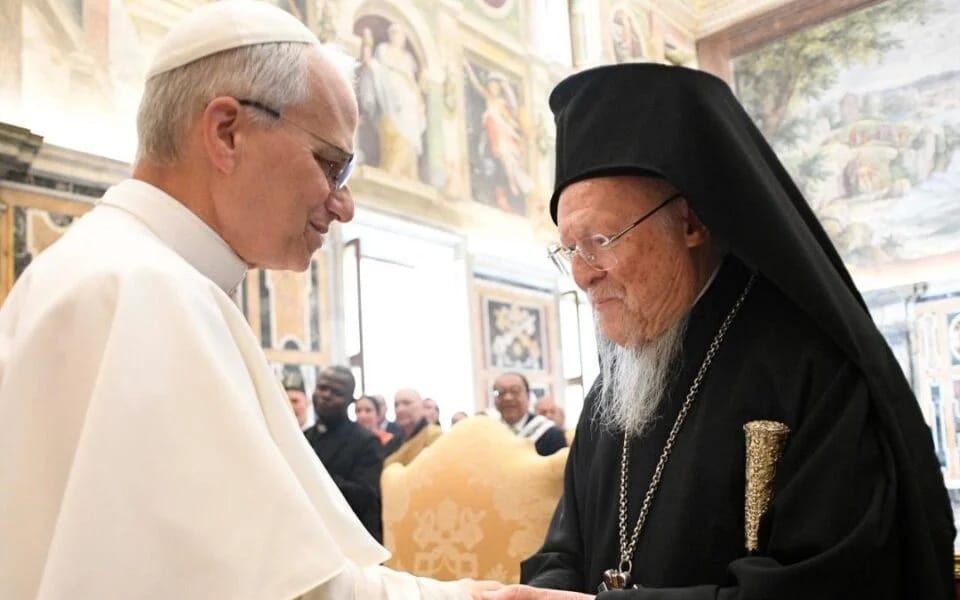

Ecumenical Patriarch Bartholomew has met with Pope Leo XIV at the Vatican, one day after he attended the papal inauguration ceremony.
Sources told the Athens-Macedonian News Agency that both religious leaders expressed their intention to build upon the “close, brotherly” relationship that had flourished under Pope Francis. Their shared priorities include the protection of vulnerable populations and the promotion of global peace.
During the meeting, it was agreed that Leo and Bartholomew will hold a joint event later this year to commemorate the 1,700th anniversary of the First Ecumenical Council of Nicaea. The gathering is expected to take place in Iznik, Turkey – the ancient city of Nicaea – where the landmark council was held in 325 AD.
Sources noted that the meeting may be scheduled for the end of November, potentially coinciding with the feast day of Andrew the Apostle, the founder of the Church of Constantinople. Such a visit would provide the pope an opportunity to visit the Ecumenical Patriarchate in Istanbul.
Bartholomew recently referred to Pope Francis’ planned visit to Nicaea, on the occasion of the 1700th anniversary of the First Ecumenical Council, which did not come to fruition: “He was going to come to our country in a month to go together to Nicaea, where the First Ecumenical Council met, to commemorate the memory of the Fathers, to exchange wishes and thoughts on the future of Christianity. All this, of course, was wrecked with his death-or rather postponed,” he noted.
At the same time, he added he expects Pope Francis’ successor to make the aborted visit to Nicaea later this year. “I believe that he will come and we will go together to Nicaea to give a message of unity, love, fraternity, and a common path of the Churches towards the future of Christianity.”
The First Ecumenical Council of Nicaea was held in 325 AD and marked a major turning point in early Christian history.
Convened by Emperor Constantine I, the council aimed to resolve theological disputes, especially the Arian controversy, which questioned the divinity of Jesus Christ. The council affirmed that Christ is “consubstantial” (of the same substance) with the Father, a key doctrine later formalized in the Nicene Creed. It also addressed issues like the date of Easter and church organization.
Around 300 bishops attended, primarily from the Eastern Roman Empire, though the West was also represented. Pope Sylvester I did not attend but sent legates, including Bishop Hosius of Corduba, who played a leading role.
While modern terms like “Orthodox” and “Catholic” are often used today, at the time, there was no formal division between Eastern and Western Christianity. The Church was still unified, often referred to as the “Catholic” (universal) Church, with “Orthodox” used more to signify right belief rather than a separate branch.
All participants at Nicaea were part of this one united Christian Church, which would not officially split into Roman Catholic and Eastern Orthodox branches until centuries later, in the Great Schism of 1054.
Related: Patriarch Bartholomew Pushes for Shared Orthodox-Catholic Easter Date
